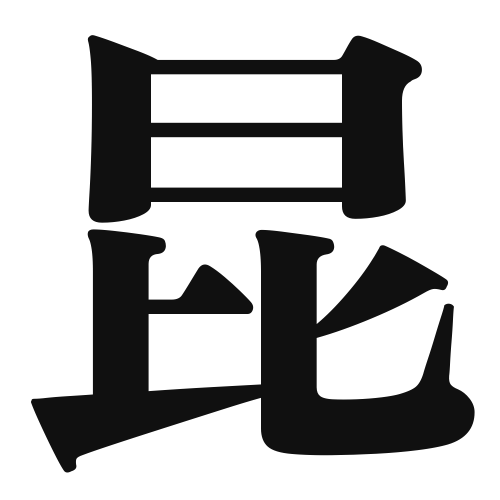1. Overview of Meaning
The kanji “昆” (kun) generally refers to “insects” or “creatures.” It is often associated with the idea of small living beings, particularly those that are part of the natural world.
2. Formation and Radical
The kanji “昆” is a phonetic compound (形声文字), which means it combines a meaning component with a phonetic component. The left part, “虫” (mushi), represents “insect,” while the right part, “昆,” provides the pronunciation.
The radical of “昆” is “虫” (mushi), which is commonly used in kanji related to insects and small creatures.
3. Examples of Usage
Some commonly used words and phrases that include “昆” are:
- 昆虫 (konchuu) – insect
- 昆布 (konbu) – kelp (a type of seaweed)
In everyday conversation, you might hear:
「公園で昆虫を観察するのが好きです。」
(I like observing insects in the park.)
4. Synonyms and Antonyms
Similar kanji with related meanings include:
- 虫 (mushi) – insect (more general term)
- 動物 (doubutsu) – animal (broader category that includes insects)
Antonyms or contrasting kanji include:
- 植物 (shokubutsu) – plant (referring to flora, as opposed to fauna)
5. Cultural and Historical Background
The kanji “昆” has connections to Japanese culture, particularly in the context of nature and the environment. In traditional Japanese culture, insects are often celebrated in poetry and art.
Proverbs and idiomatic expressions that include “昆” may not be very common, but the appreciation of insects can be seen in various cultural references, such as the famous haiku about the beauty of nature and its small creatures.
